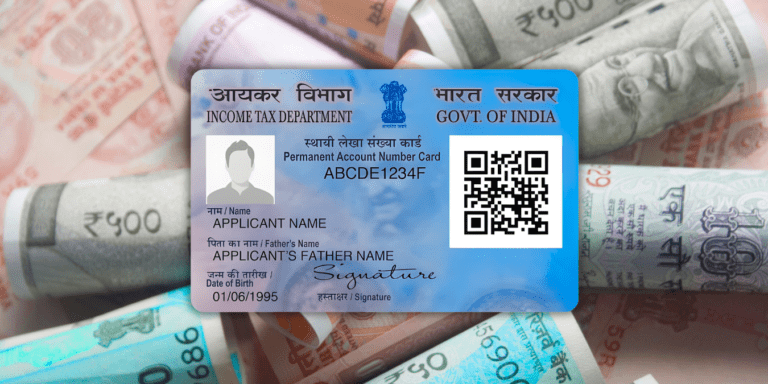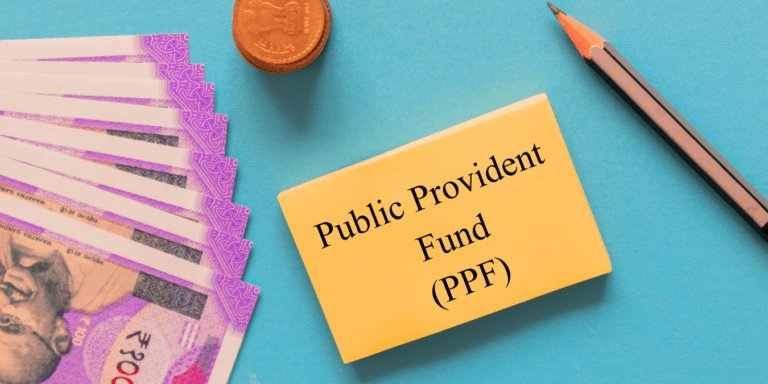
In a significant move aimed at providing relief to fixed deposit (FD) investors, the Indian government has introduced a new rule that exempts interest income from FDs up to Rs 50 lakh from taxation. This change, announced in the Union Budget 2025, is set to benefit a large number of depositors, particularly senior citizens and those relying on interest income for their livelihood. In this comprehensive blog post, we will delve into the details of this new rule, the calculations involved, and the specific groups of people who will benefit the most.
” The new rule allowing zero tax on FD interest up to Rs 50 lakh! Learn how senior citizens, low-income earners, and joint account holders can benefit. Get insights on FD tax calculations, TDS exemptions, and smart strategies to maximize savings. Stay informed and save more with this game-changing tax update! “
Fixed deposits have long been a popular investment choice for risk-averse individuals seeking stable returns. However, the interest earned on these deposits has traditionally been subject to taxation, reducing the net returns for investors. The new rule introduced in the Union Budget 2025 aims to alleviate this burden by exempting interest income from FDs up to Rs 50 lakh from tax. This blog post will provide a detailed analysis of this rule, including the calculations involved and the specific groups of people who stand to benefit.
Overview of the New Rule
The Union Budget 2025 has brought significant changes to the taxation of interest income from fixed deposits. As per the new rule, individuals who have deposited up to Rs 50 lakh in fixed deposits will not be required to pay tax on the interest earned, provided their total income does not exceed the basic exemption limit. This rule is applicable to both senior citizens and non-senior citizens, although the exemption limits and conditions vary slightly between the two groups.
Key points of the new rule include:
- Zero tax on interest income from FDs up to Rs 50 lakh.
- No need to file an Income Tax Return (ITR) if the total income is within the exemption limit.
- Submission of Form 15H (for senior citizens) and Form 15G (for others) to ensure no Tax Deducted at Source (TDS).
Detailed Calculation of Tax Exemption
To understand how the new rule works, let’s consider an example:
Example:
- Fixed Deposit Amount: Rs 50,00,000
- Interest Rate: 7.75% per annum
- Annual Interest Earned: Rs 3,87,500
For a senior citizen, the basic exemption limit is Rs 4,00,000. Since the annual interest income of Rs 3,87,500 is below this limit, no tax is payable, and there is no need to file an ITR. For non-senior citizens, the exemption limit is Rs 2,50,000. If the interest income exceeds this limit, the excess amount becomes taxable as per the applicable slab rates.
Who Will Benefit from the New Rule?
The new rule is expected to benefit a wide range of investors, particularly those who rely on interest income for their daily expenses. Here are the key groups of people who stand to gain the most:
1. Senior Citizens
Senior citizens often invest a significant portion of their savings in FDs to secure a steady income post-retirement. With the new rule, they can now earn up to Rs 50 lakh in interest income without worrying about tax implications. This provides them with much-needed financial security and relief.
2. Retirees
Retirees who depend on interest income from FDs to meet their living expenses will also benefit from the new rule. The tax exemption on interest income up to Rs 50 lakh will help them maintain their standard of living without the burden of additional taxes.
3. Low-Income Earners
Individuals in the lower tax brackets, such as those earning less than Rs 5 lakh per annum, will also benefit from the new rule. Since their overall income is low, the tax exemption on FD interest income up to Rs 50 lakh will significantly reduce their tax liability.
4. Joint Account Holders
As mentioned earlier, in the case of joint FDs, the tax exemption limit of Rs 50 lakh applies to each account holder individually. This means that joint account holders can effectively double the tax exemption limit, making it an attractive option for families and couples.
5. Conservative Investors
Conservative investors who prefer the safety and stability of FDs over riskier investment options like equities will also benefit from the new rule. The tax exemption on interest income up to Rs 50 lakh makes FDs an even more attractive investment option for this group.
How to Avail the Tax Exemption
To avail the tax exemption, individuals need to ensure that their total income, including interest income, does not exceed the basic exemption limit. Additionally, they must submit the appropriate forms to their banks to avoid TDS deductions:
- Form 15H: For senior citizens.
- Form 15G: For individuals below 60 years of age.
These forms must be submitted at the beginning of each financial year to ensure that no TDS is deducted on the interest income.
Impact on Senior Citizens
Senior citizens are among the biggest beneficiaries of the new rule. With a higher exemption limit of Rs 4,00,000, they can earn substantial interest income without paying any tax. This is particularly beneficial for retirees who rely on interest income for their day-to-day expenses. The new rule provides them with greater financial security and peace of mind.
Comparison of New and Previous Tax Rules on FD Interest Income
To provide a clear understanding of the changes introduced in the Union Budget 2025 regarding the taxation of interest income from fixed deposits (FDs), here is a detailed comparison in table format:
| Criteria | Previous Tax Rules | New Tax Rules (Budget 2025) |
| Tax Exemption Limit | No specific exemption for FD interest income. | Interest income from FDs up to Rs 50 lakh is exempt from tax. |
| Basic Exemption Limit | Rs 2,50,000 for non-senior citizens, Rs 3,00,000 for senior citizens. | Rs 2,50,000 for non-senior citizens, Rs 4,00,000 for senior citizens. |
| TDS Threshold for Non-Senior Citizens | Rs 40,000 per annum. | Rs 50,000 per annum. |
| TDS Threshold for Senior Citizens | Rs 50,000 per annum. | Rs 1,00,000 per annum. |
| Forms to Avoid TDS | Form 15G for non-senior citizens, Form 15H for senior citizens. | Form 15G for non-senior citizens, Form 15H for senior citizens. |
| Requirement to File ITR | Required if total income exceeds the basic exemption limit. | Not required if total income, including interest income, is within the exemption limit. |
| Tax Rate on Interest Income | Taxed as per the applicable income tax slab rates. | Interest income up to Rs 50 lakh is tax-free; any excess is taxed as per slab rates. |
| Applicability | Applicable to all individuals with FD interest income. | Applicable to individuals with FD interest income up to Rs 50 lakh. |
Key Takeaways
- Higher Exemption Limits: The new rules provide higher exemption limits for both senior and non-senior citizens, significantly reducing the tax burden on interest income from FDs.
- Increased TDS Thresholds: The thresholds for TDS deductions have been increased, providing further relief to depositors.
- Simplified Compliance: With the new rules, individuals whose total income is within the exemption limit are not required to file an Income Tax Return (ITR), simplifying the compliance process.
- Forms for TDS Avoidance: The requirement to submit Form 15G and Form 15H remains, ensuring that no TDS is deducted if the interest income is within the specified limits.
By understanding these changes, depositors can better plan their investments and take full advantage of the tax benefits offered under the new rules. For more detailed information and personalized advice, it is recommended to consult with a financial advisor or visit the official websites of the Income Tax Department and your bank.
How to Maximize the Benefits of the New Rule
To make the most of the new rule, investors should consider the following strategies:
1. Diversify Your FDs
Instead of investing all your savings in a single FD, consider diversifying your investments across multiple FDs. This will not only help you spread the risk but also allow you to take advantage of the tax exemption limit on each FD.
2. Opt for Joint FDs
If you are married or have a trusted family member, consider opening joint FDs. As mentioned earlier, the tax exemption limit of Rs 50 lakh applies to each account holder individually, effectively doubling the exemption limit for joint FDs.
3. Invest in Senior Citizen FDs
Senior citizen FDs typically offer higher interest rates compared to regular FDs. If you are a senior citizen, consider investing in these FDs to maximize your interest income while enjoying the tax benefits under the new rule.
4. Plan Your Investments Wisely
If you have other sources of income, such as salary or business income, plan your FD investments in such a way that your total income (including FD interest) remains within the tax exemption limit of Rs 50 lakh. This will help you minimize your overall tax liability.
5. Consult a Financial Advisor
Tax laws can be complex, and it’s always a good idea to consult a financial advisor to understand the implications of the new rule on your specific financial situation. A financial advisor can help you optimize your investments and tax planning to make the most of the new rule.
The new rule exempting interest income from fixed deposits up to Rs 50 lakh from taxation is a welcome relief for many depositors. It provides significant financial benefits, particularly for senior citizens and low-income earners. By understanding the details of this rule and the calculations involved, individuals can make informed decisions about their investments and maximize their returns without the burden of taxation.
Frequently Asked Questions (FAQs)
Q1: What is the new rule regarding tax on FD interest income? A1: The new rule exempts interest income from fixed deposits up to Rs 50 lakh from taxation, provided the total income does not exceed the basic exemption limit.
Q2: Who can benefit from this rule? A2: The primary beneficiaries include senior citizens, non-senior citizens, and low-income earners who rely on interest income for their livelihood.
Q3: How can I ensure that no TDS is deducted on my FD interest income? A3: To avoid TDS deductions, submit Form 15H (for senior citizens) or Form 15G (for others) to your bank at the beginning of each financial year.
Q4: What is the basic exemption limit for senior citizens and non-senior citizens? A4: The basic exemption limit is Rs 4,00,000 for senior citizens and Rs 2,50,000 for non-senior citizens.
Q5: Do I need to file an ITR if my interest income is below the exemption limit? A5: No, if your total income, including interest income, is within the exemption limit, you do not need to file an ITR.
-
The Supabase India Ban Explained: Who’s Affected, Why It Happened, and What Comes Next
India silently blocked Supabase on February 24 — no warning, no reason given. Thousands of apps broke overnight.
-
Geopolitical Shock: Bitcoin Tumbles Under $64K Following US-Israel Military Strike on Iran
Bitcoin just crashed below $64,000 — and a military strike triggered it. But here’s what nobody’s telling you:
-
New EPFO Rule 2026: You Can Now Withdraw 100% of Your PF Balance Without Resigning — Here’s How
EPFO just changed the rules — and most employees have no idea they can now access their full
































